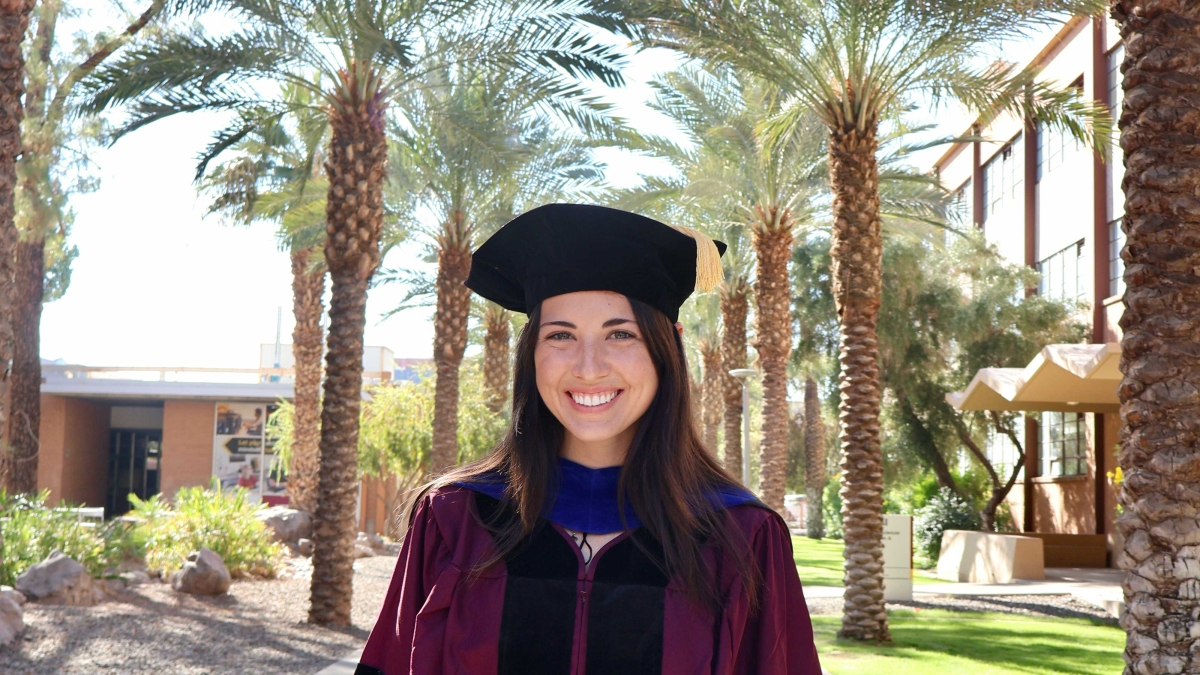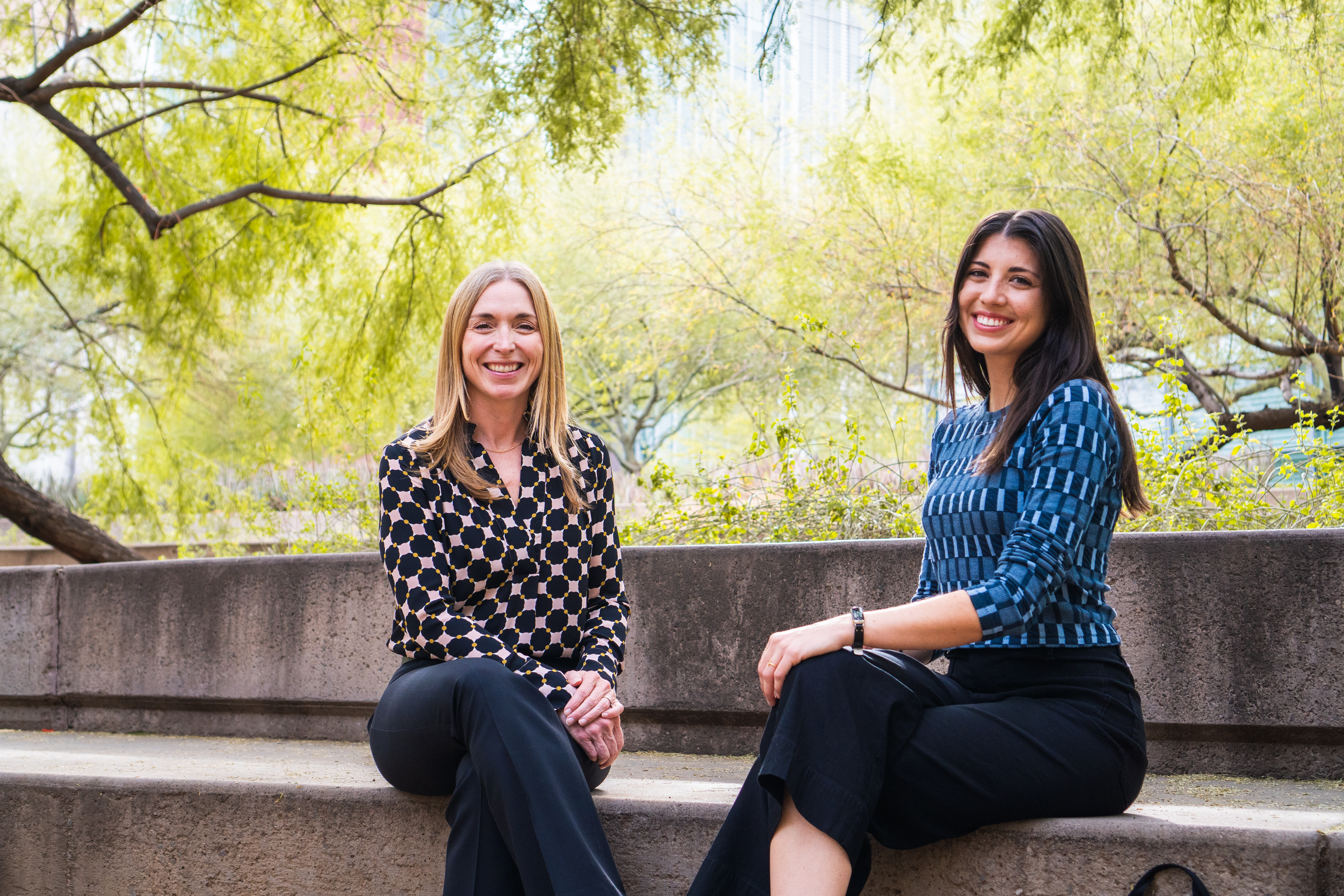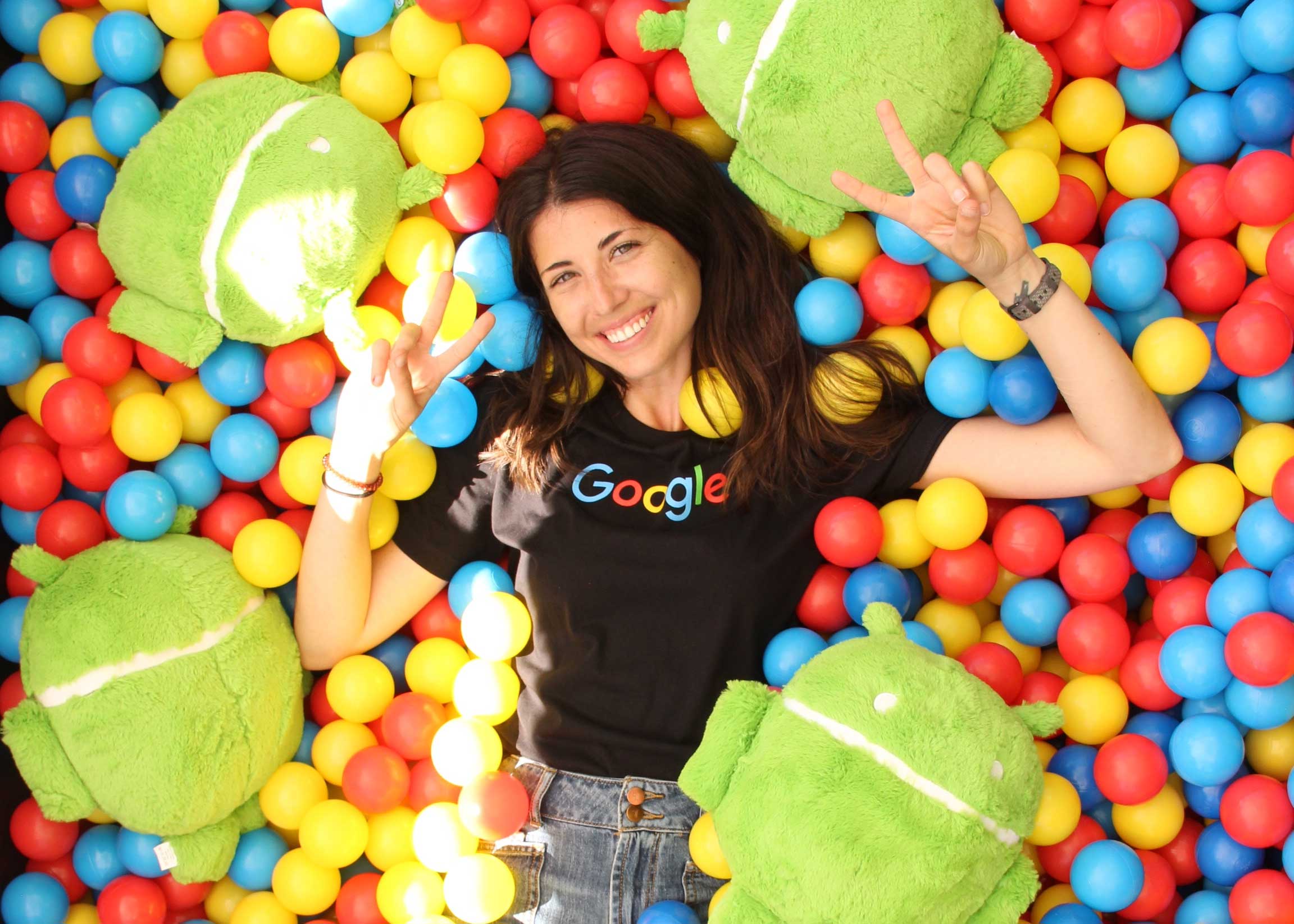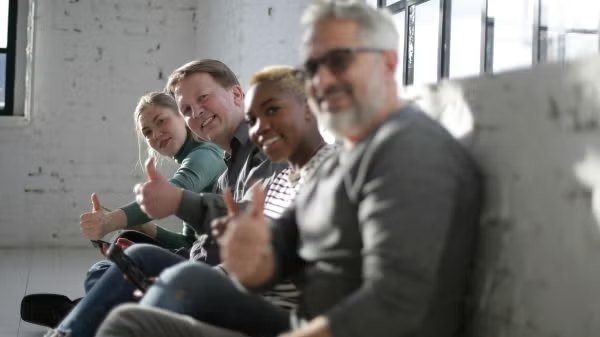Psychology trailblazer leaves legacy of mentorship, research excellence

Jeri Sasser, courtesy photo
Editor's note: This story is part of a series of profiles of notable fall 2023 graduates.
Jeri Sasser’s journey into psychology was fueled by a genuine desire to help others. As she nears the completion of her PhD in psychology at ASU, specializing in developmental psychology, Sasser remains committed to both her passion for research and supporting others in their academic pursuits.
Hailing from Austin, Texas, where she was born, and having grown up in Edmond, Oklahoma, Sasser ventured to Athens, Georgia, for her undergraduate degree. She made Tempe, Arizona, her home in 2019 when she began her doctoral program at ASU and quickly involved herself in the psychology community, collecting accolades for her service and scholarly achievements.
Awards include the Department of Psychology’s Samuel Leifheit Memorial Citizenship Award and the Graduate Professional Student Association’s (GPSA) Teaching Excellence Award in 2021. Sasser has also been recognized with the GPSA’s Justice, Equity, Diversity, and Inclusion award, the Department of Psychology’s Doctoral Scholar Award, the department’s Outstanding Writing in Psychology award and the Student Leader for the College of Liberal Arts and Sciences Award in 2022, among several other prestigious awards. Notably, she is also the recipient of the 2023 Harry Lowell Swift Advancing Health Scholarship and the National Institute of Drug Abuse T32 Predoctoral Fellowship.
A defining moment for Sasser was her involvement in the Department of Psychology’s ENERGIZE Research Initiative. Sasser launched the ENERGIZE Mentorship Initiative, a sub-program designed to guide underrepresented undergraduate students in STEM in navigating research assistantships. Her proposal uniquely paired every ENERGIZE applicant with current graduate students, creating personalized mentorship experiences.
Speaking on the initiative, Sasser notes that many students lack prior knowledge about entering research or the resources to prepare for the competitive process of becoming a research assistant. “The ENERGIZE Mentorship Initiative aimed to promote students’ engagement, competence and confidence in a research setting.”
Sasser’s impactful program has mentored over 250 students, complemented by a research methods course she co-established at ASU. Her contributions extend to uncovering vital findings supporting the transition of Latino students to college life.
As a lead graduate student researcher in the Adolescent Stress and Emotion Lab, Sasser played a crucial role in the Transciones project, a longitudinal study funded by the William T. Grant Foundation examining the daily stress experiences and health behaviors of ASU Latino students and how it impacted their academic achievement and integration into college.
Sasser is graduating ASU having published 10 first-author research papers, contributing to seven more as a co-author. She reflects on her doctoral journey and shares more about her calling to create a positive impact within her community below.

Professor and Associate Chair of ASU’s Department of Psychology Leah Doane (left) served as Sasser’s faculty advisor during her pursuit of a PhD in psychology with a specialization in developmental psychology. Courtesy photo
Question: Why did you choose ASU?
Answer: I knew ASU had one of the strongest quantitative psychology programs and there were multiple faculty members with expertise in areas that were central to my current and future research interests, but I ultimately chose ASU because of its culture. The program felt very close-knit and cooperative, rather than competitive. Graduate students got along with one another and seemed to form genuine friendships, and faculty members often collaborated on research projects.
It was really important that I chose an interdisciplinary and supportive environment to complete my PhD, given that I would be dedicating the next five to six years in this community. Choosing ASU was the best decision I could have made, and I truly believe that this is where I was supposed to be.
Q: Can you share more about your doctoral dissertation?
A: My dissertation is a combination of three published papers that explored the influence of family members such as parents and siblings, as well as broader aspects of the family context, like dynamics and values, on adolescent sleep. The central findings emphasized that adolescent sleep is significantly influenced by the family environment and cannot be fully understood without considering this context.
The aim of this research collection is to shed light on how families can support better sleep during adolescence, addressing the notable sleep-related challenges this age group encounters. My hope is that this work guides future research directions and informs intervention and prevention strategies to enhance sleep health and overall well-being during adolescence. These papers were published in the Journal of Youth and Adolescence, the Journal of Research on Adolescence and Sleep Medicine.
Q: You’re leaving ASU with 17 publications under your belt — what does this accomplishment mean to you?
A: (Laughs) As cliché as it sounds, that is just a number and doesn’t do justice to the time and effort invested in these papers by folks other than myself. To me, this really goes to show the power of collaboration and relationship-building. These publications are the result of collaborations with teams both within and outside of ASU, including the Arizona Twin Project, the Youth Development Institute, the ASU Biodesign Institute and ASU Counseling Services. These diverse collaborations not only helped me learn more about the topics that we were studying, but also made the journey more fulfilling, working alongside others with a shared interest and similar goals. So I guess the short answer is that this perceived productivity is really just a testament to the collaborative spirit that drives impactful research.
Q: Could you share an instance or story that illustrates the impact of a specific professor or mentor during your time at ASU?
A: My doctoral advisor, Dr. Leah Doane, has significantly influenced my experience at ASU. When my original mentor unexpectedly retired in the first semester of my PhD, Dr. Doane readily agreed to take me on as a student. This is a big deal! Many professors spend years preparing to take a new student and don’t do so lightly (after all, it is a five-to-six-year relationship they are committing to). This is just one example of how Dr. Doane has always had my best interest at heart.
She cared about me as a person and helped me in achieving my goals, even when they did not align with the traditional outcomes of the program. Based on my experiences, as well as others in the lab, several graduate students and I nominated her for an Outstanding Faculty Mentor award.
Q: Could you elaborate on any specific experiential learning opportunities that significantly influenced your academic and personal growth?
A: This past summer, I completed an internship at Google as a user experience researcher, where I gained insights into the role’s demands and expectations, drawing from my background in psychology. Working with the Pixel hardware team, I learned how to lead end-to-end concept testing, usability studies and foundational research, conduct product synthesis and market literature reviews, and collaborate effectively with cross-functional stakeholders such as those working on Android and Fitbit.
Leveraging my psychology background, I contributed to initiatives broadly related to user health and well-being. For example, I supported the launch of the Pixel 8 Pro temperature sensor, a feature with the potential to significantly impact health and wellness. I’m really proud of the contributions I made during my time at Google, and I’m deeply grateful for the opportunity to learn and grow within such a collaborative, inclusive and forward-thinking community.

ASU doctoral psychology student Jeri Sasser completed an internship as a user experience researcher at Google, where she supported the launch of the Pixel 8 Pro temperature sensor. Courtesy photo
Q: What’s the best piece of advice you’d give to those still in school?
A: The biggest advice I have is to continuously listen to yourself and what makes you excited, and not be afraid to pivot or explore new options. I think as students it’s easy to get stuck in overthinking what the “correct” pathway is or feel the need to take the traditional route because that is what most of those before us have done. But in reality, the “best” path looks different for everyone, because we all have different strengths, values, goals and personal situations. The moment that I started noticing what I had the most fun doing, and tapping into what some of my natural strengths were, the future became a lot more exciting to me (as opposed to stressful or scary). And we all deserve to be excited about the future!
Q: Can you share more about your plans after graduation?
A: I will be starting a full-time job as a user experience researcher at EdPlus at ASU. I’m excited about contributing to the innovative work at EdPlus, expanding access to high quality education and enhancing students’ learning experiences. I’ll primarily be working on ASU Online, which hosts the nation’s fourth-best online psychology program and is one of the most popular ASU Online majors. I’m optimistic that my work will contribute to the field by reducing barriers to higher education and improving learning outcomes for current and prospective students.
More Science and technology
Statewide initiative to speed transfer of ASU lab research to marketplace
A new initiative will help speed the time it takes for groundbreaking biomedical research at Arizona’s three public universities…

ASU research seeks solutions to challenges faced by middle-aged adults
Adults in midlife comprise a large percentage of the country’s population — 24 percent of Arizonans are between 45 and 65 years…

ASU research helps prevent substance abuse, mental health problems and more
Smoking rates among teenagers today are much lower than they were a generation ago, decreasing from 36% in the late 1990s to…

